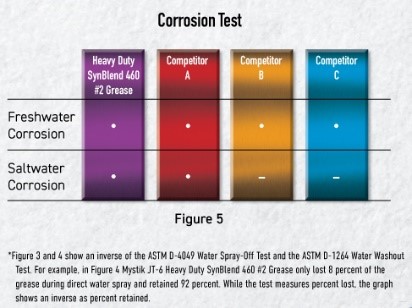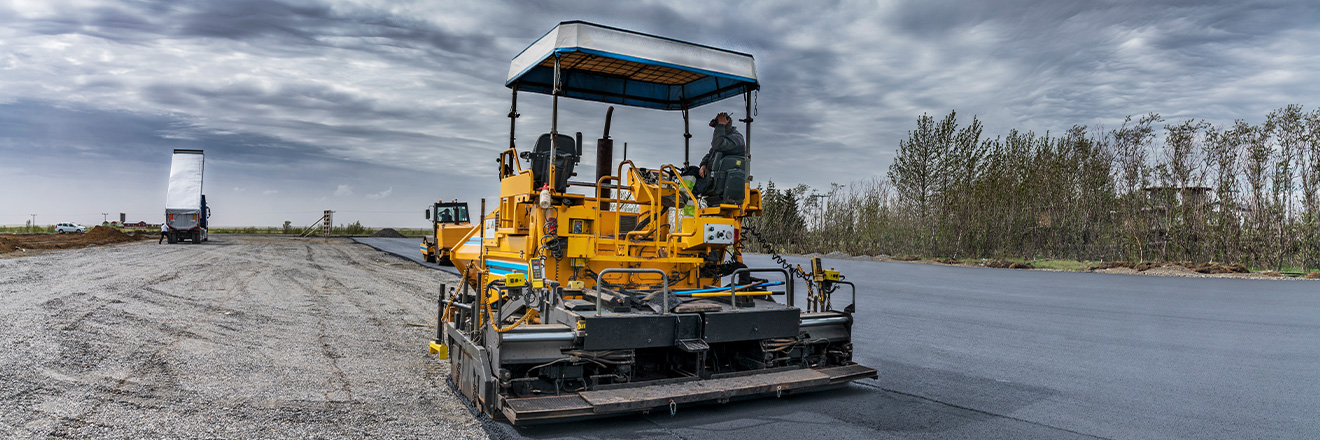There are many attributes that a quality heavy-duty grease should possess, but with so many products on the market all making similar claims, it can be difficult to decipher which grease is the best choice for your needs. Fortunately, as the industry has begun making deeper evaluations into the overall quality and lifespan of their products, several tests have come to light that greatly assists in the selection process. By taking a deeper look at what each of these tests evaluates and how the results are compared, you can effectively start your own comparison process, helping you to choose the best option for your needs.
Extreme Pressure Test
One of the first key factors to evaluate when selecting a heavy-duty grease is how it performs during an extreme pressure test. The better the grease's overall performance, the better its load-carrying capabilities. This is a crucial factor to evaluate, especially for those industries dealing with heavy weights and extreme environments.
When the grease selected is not adequately equipped with the extreme pressure (EP) additives necessary to properly protect your equipment, this creates what is known as boundary conditions. During boundary conditions, there is no separation of the interacting surfaces. As the parts begin to interact without the proper lubrication, adhesive wear begins to form, eventually leading to total machine failure if left uncorrected.
To proactively prevent against failure states, it's important to choose a lubricating grease that can actively protect your equipment without faltering under pressure. In a study conducted to test the extreme pressure effectiveness of Mystik® JT-6® Heavy Duty SynBlend 460 #2 Grease against three other leading competitors found on the market, it was discovered that Mystik JT-6 Heavy Duty SynBlend 460 #2 Grease was twice as effective as the competition. This effectiveness directly correlates to greater protection for high loads, better protecting your hard-working equipment.
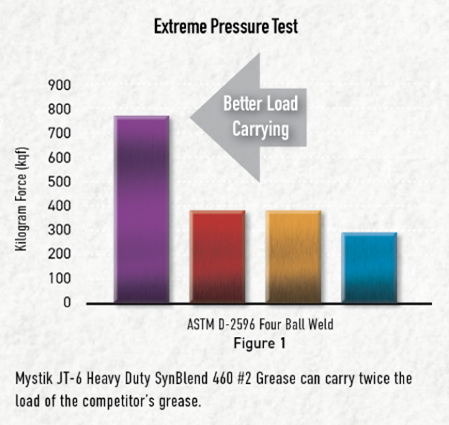
Mobility Test
The next key factor to evaluate with any heavy-duty grease is its mobility performance. With any grease, the greater the mobility, the better the overall pumpability. This illustrates that the grease will be able to continue functioning and protecting your critical components in fluctuating environmental situations, specifically cold-weather applications.
No matter what lubricant you select, each one will have a minimum temperature at which they remain operable. Once this point is reached, the grease becomes too hard to adequately move throughout the system and protect your components. Once this process begins, it can lead to a chain reaction of events that end in component and machine failure.
To help prevent against these failure symptoms, it's important to verify that the grease you are selecting can comprehensively cover all of your essential parts while being soft enough to move where it is needed. In a test conducted against three industry-leading greases, it was found that Mystik JT-6 Heavy Duty SynBlend 460 #2 Grease outperformed the competition on a mobility test on its pumpability and its ability to stay in place.
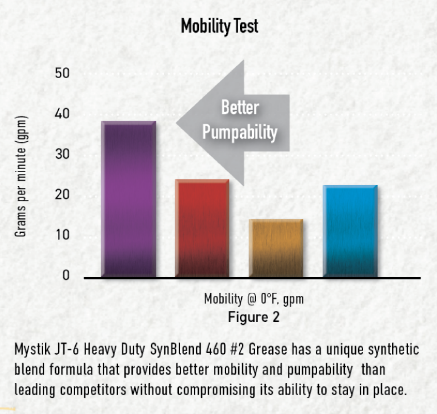
Water Spray-Off Test
The next test result to review when selecting a heavy-duty grease is the water spray-off test. With a quality grease, it must be able to stay in place under a broad range of circumstances. One of these particular situations is under direct water spray, such as when a machine or component is being washed down as part of a preventative maintenance plan. The grease needs to be able to resist washing away in order to continue properly protecting different components. This can also be a great asset to have when combatting critical environmental situations, such as heavy rains or severe storms. The better a grease performs during the water spray-off test, the better metal adhesion it exhibits.
No matter which grease you select, there will be a limit to what each grease can withstand. But, the longer the grease can last, the more effect it can have when it comes to preventing rust and corrosion from occurring in your systems. Once rust and corrosion begin, it can have a devastating impact on the overall health of the entire system.
This is why it's important to select a heavy-duty grease that can adequately protect your machines from water and the damage that accompanies it. In a study conducted against three of the leading greases available on the market, Mystik JT-6 Heavy Duty SynBlend 460 #2 Grease regularly outperformed the competition on its effectiveness to remain in position when exposed to direct water spray.
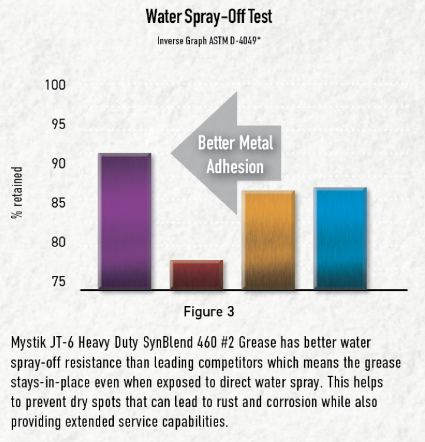
Corrosion Test
The final test that should be used in your heavy-duty grease selection process is the corrosion test. Corrosion is a silent and serious threat that can threaten to wreak havoc on every component of your system. Corrosion is often referred to in terms of the overall reduction in wall thickness and structural continuities that it causes. Types of corrosion damage include pits, flaws and voids. A quality grease needs to be able to properly coat the different components and maintain its position under a plethora of different conditions.
By selecting a quality grease, you can effectively help prevent the conditions that perpetuate the silent damage of corrosion. When tested against other leading greases, it was found that the Mystik JT-6 Heavy Duty SynBlend 460 #2 Grease was one of the only greases to actively resist and protect against corrosion caused by both freshwater and saltwater sources. Not only was it able to actively prevent corrosion, but the grease was also able to maintain 92% of its total coverage after receiving direct spray from water. This ensures that not only will the grease actively protect your important components, but it will do so longer than the competition.
